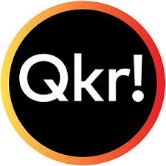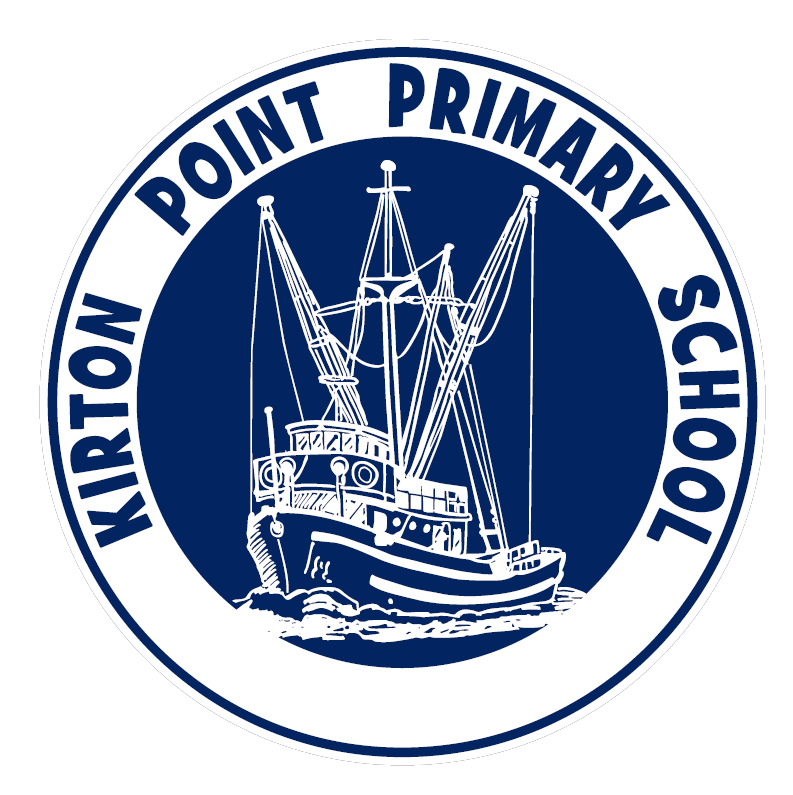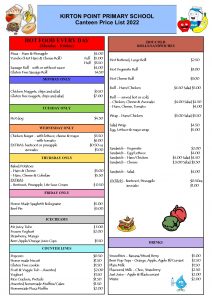Parent Info
Welcome to Kirton Point Primary School
At Kirton Point, we endeavour to provide a high quality education. We expect every individual to pursue excellence and to achieve his or her personal best.
Education is a shared responsibility between students, teachers and parents. We welcome your involvement in school learning programs.
You are invited to share your ideas and opinions, and to support us in providing the best learning opportunities possible for your child.
We hope that you and your child enjoy your time at Kirton Point.
We look forward to working with you.
Parent Information Book
(Download PDF, 1MB)
Aboriginal Education
- The Aboriginal Education Teacher (AET) works with staff and students to implement Aboriginal Cultural Studies which is part of the Australian Curriculum. The AET supports the learning programmes of Aboriginal students, particularly in literacy and numeracy, and coordinates staff professional learning in Aboriginal Education.
- An Aboriginal Community Education Officer (ACEO) helps to meet the needs of the children by supporting and liaising between children, families, staff, agencies and the community.
Attendance
- Every day at school counts towards a more successful education.
- It is a legal requirement that all students between the ages of 6 and 17 attend school.
- Teachers are required to record student attendance details. It is essential that parents provide teachers with information, either verbally or in writing, about their child’s absence or lateness. On occasions a doctor’s certificate may be requested.
- If a child is continuously absent from or late for school, parents will be contacted to provide reasons and will be requested to commit to ways of improving their child’s attendance.
- Students who arrive at school after 8:45am must report to the Front Office before going to class.
- Continued absenteeism/lateness is reported to Education Department personnel for investigation.
- The Principal must approve exemptions for unavoidable reasons e.g. family holiday. Requests for such approval must be in writing on forms available at the school office.
Behaviour Management
At Kirton Point Primary School we acknowledge and embrace the uniqueness of individuals. We endeavour to create an environment which reflects the school values of Friendship, Respect, Fairness, Teamwork, Trust and Responsibility.
A safe and supportive learning environment is one in which individuals display consideration and respect, take responsibility for their own behaviour and support the achievement of group goals. Behaviour support processes have this aim as a priority.
In order to achieve quality teaching and learning within a safe, secure learning environment, all students and adults at Kirton Point Primary are expected to adhere to the following:
LEARNING:
We strive for excellence and aim to achieve individual success.
SAFETY:
We behave and play in a manner that is safe for people and the environment.
TREATMENT:
We treat others as you would wish to be treated.
We respect and take care of property and the school environment.
MOVEMENT:
We move around the school in a safe and respectful manner.
COMMUNICATION:
We speak politely and use appropriate body language when communicating with others.
We listen to and follow instructions.
PROBLEM SOLVING:
We work together to solve problems.
Class teachers and students negotiate a variety of responses which reinforce the use of safe, desirable behaviours. Students are given immediate, constructive feedback when using responsible behaviours and at times may earn individual or group rewards.
Undesirable behaviour is addressed using a wide variety of responses depending on the severity and frequency of the behaviour. Responses include rule reminder, rule restatement, choice, isolation within the class, office support and parent contact. Repeated use of undesirable behaviour which impinges on students’ rights to learn and teachers’ rights to teach within a safe, secure learning environment may require the development of a behaviour plan or, in extreme cases, suspension or exclusion.
Book Club
- Reasonably priced, good quality books are available through Lucky Book Club.
- Order forms are sent home approximately twice a term.
- Payment must be received with the order.
Breakfast Club
Breakfast Club operates each morning from 8:15 – 8:45 am, providing a nutritious meal for children who choose to use this service. Canteen staff and students prepare and serve the breakfast at the canteen. If you are able to assist, please contact the Canteen Administrator.
Buses
Town Buses: Contracted town buses service the school. For route, cost and timetable details, contact the Front Office.
DECD Buses: If you live over 5 kilometres from the closest school, you qualify for travel on Education Department buses. For details, please phone Port Lincoln Primary School on 86 821479.
KPPS Bus: KPPS Governing Council owns and maintains a 25-seat Mitsubishi Rosa bus that is fitted with seatbelts. The school’s use of this bus for camps and excursions reduces transport costs for parents.
Camps & Excursions
Camps and excursions can greatly enhance student learning offering new, varied, challenging and practical experiences across all learning areas.
Activities beyond the school setting provide real-life, meaningful learning for students to experience.
Costs for camps and excursions are not included in school fees.
Canteen
All parents are urged to provide healthy, nutritious food for children to consume at school which meet the healthy nutrition guidelines.
- Students may purchase recess foods and lunch from the school canteen.
- Canteen lunches are ordered via lunch bags. Orders are written on the bag, money is deposited inside the bag which placed inside a classroom lunchbox.
- Students, or their parents, should record orders at home or in the classroom rather than in the canteen.
- Lunchboxes are delivered to the canteen before 9.30 each morning and picked up by monitors at lunchtime.
- Lunch bags and price lists are available from the school canteen. These may be requested via lunch order bag.
- Children who go home for lunch must be signed OUT and IN by parent/caregiver or adult nominee.
Download Canteen Price List 2022
 The KPPS Canteen supports Qkr!, which is a secure and easy way to order and pay for recess and lunch, giving you the flexibility to place orders at a time and place that suits you. This FREE app saves time by letting you order and pay directly from your phone, and reduces the need for children to bring cash to school. Download the app today. It only takes minutes to get started
The KPPS Canteen supports Qkr!, which is a secure and easy way to order and pay for recess and lunch, giving you the flexibility to place orders at a time and place that suits you. This FREE app saves time by letting you order and pay directly from your phone, and reduces the need for children to bring cash to school. Download the app today. It only takes minutes to get started
Changes
Please keep the school informed about changes in your child’s life.
These changes may include:
- Name, address, phone numbers
- Emergency contact numbers
- Medical conditions
- Marriage, separation or divorce of parents
- Custody and access court orders
- Births in the family
- Accidents or bereavement in the family
This information will be kept confidential if requested.
Clothing/Uniform
- All students must wear school colours: navy and white
- Plain navy and white clothing, without any logo except Kirton Point Primary School’s logo, is required.
- The following clothing meets school policy:
- Navy or white T-shirts and polo shirts
- Navy shorts, culottes or skirt
- Navy and white check dress
- Navy tracksuit pants, long pants
- Navy or white skivvy
- Navy or white socks
- Navy windcheater
- Navy beanie, navy scarf
- Navy broad-brimmed hat or bucket hat (see HATS / Sun Protection)
- Navy rain jackets
Please Note: Denim clothing, particularly jeans, is not part of school uniform.
- School jumpers, polo shirts and broad-brimmed hats, at reasonable prices, may be purchased from the school. Second hand clothing may be purchased for a gold coin donation.
- Please ensure that your child is dressed in comfortable clothes.
- Suitable footwear is essential, particularly for play and the Physical Education program. Thongs and high-heeled shoes are not suitable.
- Students who are not wearing school uniform may be restricted to the area immediately outside library during play times
Temporary uniform exemption, for valid reasons, may be granted by the Principal upon receipt of a request from parents.
Communication Between Parents and Teachers
Education is a partnership between parents, teachers and children and so communication between parents and teachers is of the utmost importance.
Keeping in touch with each other can be achieved via:
- Parent/Teacher Information meetings
- Learning Portfolios
- Home visits
- Parent/Teacher/Student Conferences
- Special events and school functions such as open nights, assemblies, meetings
- Formal or informal visits to the school
- Letters to and from home
- Telephone calls
- Notes in Student Diaries or Communication Books
- Newsletters
- Kirton Point Primary School’s Facebook page
- Kirton Point Primary School’s Website
Please encourage your child to be reliable and responsible when carrying information to or from school.
For more information see Reporting to Parents.
Community Service
All classes are involved in community service projects within the school and the community. Service such as caring for a beach, a park, a playground or planting trees, visiting the elderly, working for charity is encouraged. Responsibilities such as yard clean up, classroom jobs, cleaning tasks are shared by students. Community service helps students to become responsible citizens and learn that if you give to a community you will reap the rewards.
Curriculum
Kirton Point Primary School’s Curriculum is based on the Australian Curriculum.
The Australian Curriculum specifies the understandings and skills required for students from FOUNDATION TO YEAR 10 and is organized in 8 learning areas:
| LEARNING AREA | SUBJECT |
| ENGLISH | ENGLISH: READING & VIEWING WRITING LISTENING & SPEAKING |
| MATHS | MATHS: NUMBER & ALGEBRA MEASUREMENT & GEOMETRY STATISTICS & PROBABILITY |
| SCIENCE | SCIENCE: SCIENCE UNDERSTANDINGS – Biological, Chemical, Physical, Earth & Space SCIENCE INQUIRY SCIENCE AS A HUMAN ENDEAVOUR |
| HUMANITIES AND SOCIAL SCIENCES | HISTORY GEOGRAPHY, CIVICS & CITIZENSHIP, ECONOMICS & BUSINESS |
| THE ARTS | DRAMA DANCE MEDIA ARTS MUSIC VISUAL ARTS |
| TECHNOLOGIES | DESIGN & TECHNOLOGIES DIGITAL TECHNOLOGIES |
| HEALTH & PHYSICAL EDUCATION | PERSONAL, SOCIAL, COMMUNITY HEALTH MOVEMENT & PHYSICAL ACTIVITY |
| LANAGUAGES | SPANISH |
In each learning area, content descriptions specify what all young people should be taught, and the achievement standards set out the depth of understanding and sophistication of skill expected of students at points in their schooling.
General capabilities and cross-curriculum priorities:
Seven General Capabilities and 3 cross curriculum priorities are integrated and developed throughout each learning area.
The seven GENERAL CAPABILITIES are literacy, numeracy, information and communication technology capability, critical and creative thinking, personal and social capability, ethical understanding, and intercultural understanding.
The three CROSS-CURRICULUM PRIORITIES are Aboriginal and Torres Strait Islander histories and cultures, Asia and Australia’s engagement with Asia, and Sustainability.
Viewing the curriculum online:
The Australian Curriculum is published online to provide maximum flexibility in how the curriculum can be accessed and organised. For more information, refer to the website: http://www.australiancurriculum.edu.au/
Teaching for Effective Learning:
The Australian Curriculum identifies WHAT needs to be taught in Australian Schools. In South Australia, Teaching for Effective Learning (TfEL) specifies HOW the Australian Curriculum should be taught. It is organized into 4 domains:
| DOMAIN | ELEMENTS |
| 1.LEARNING FOR EFFECTIVE TEACHING |
Understand how self and others learn Develop deep pedagogical and content knowledge Participate in professional learning communities and networks Engage with the community Discuss educational purpose and policy
|
| 2.CREATE SAFE CONDITIONS FOR RIGOROUS LEARNING | Develop democratic relationships Build a community of learners Negotiate learning Support and challenge students to achieve high standards |
| 3. DEVELOP EXPERT LEARNERS | Teach students how to learn Foster deep understanding and skilful action Explore the construction of knowledge Promote dialogue as a means of learning |
| 4.PERSONALISE AND CONNECT LEARNING | Build on learners understandings Connect learning to students’ lives and aspirations Apply and assess learning in authentic contexts Communicate learning in multiple modes |
For more information, refer to the website:
http://www.learningtolearn.sa.edu.au/tfel/pages/tfelresources/satfelframeworkguide/?reFlag=1
Dental Clinic
- Port Lincoln Community Dental Clinic is part of the Port Lincoln Hospital complex, at 19 Oxford Terrace. It operates Monday to Friday.
- To arrange dental service for your child please phone 86821248.
First Aid
- If a child has an accident or becomes ill at school or whilst on a school activity, first aid staff will assess condition of child and treat any minor injury.
- On occasions a parent/guardian will be contacted in order for the child to be taken home or to access medical attention.
- When required, an ambulance will be called.
If the child is not covered by S.A. Ambulance insurance or any other insurance, the parent/guardian may request payment of the account by the Minister of Education. In this case, a statutory declaration must be signed by the parent or guardian and witnessed by the principal or deputy principal. The declaration is sent with the accident report and the ambulance account to the Legal Services Directorate for approval. - On occasions children may suffer an infectious illness. The following chart details how long a student must stay away from school when suffering an infectious illness:
| CONDITION | EXCLUSION |
| Chickenpox and Shingles | Exclude until all lesions have crusted, there are no moist sores and the person feels well. |
| Conjunctivitis | Exclude until discharge from the eyes has stopped unless a doctor has diagnosed a non-infections conjunctivitis. |
| Head Lice (Pediculosis) | Exclusion is NOT necessary if effective treatment is commenced prior to the next day. |
| Measles | Exclude from unimmunised persons for at least four days after the onset of the rash. |
| Mumps | Exclude for nine days or until swelling goes down (whichever is sooner). |
| Ringworm/Tinea | Exclude until the day after appropriate treatment has commenced. |
| Rubella (German Measles) | Exclude till fully recovered or for at least 4 days after onset of rash. |
| Scabies | Exclude until the day after appropriate treatment has commenced |
| School Sores (Impetigo) | Exclude until appropriate treatment has commenced. Any sore on exposed surfaces should be covered with a dressing. |
- Parents are requested to detail any medical and health information at the time of enrolment. This should be updated each year or whenever there is a change in a child’s medical condition.
- A health care plan should be completed by the parent in conjunction with doctor’s advice for any student with an ongoing, complicated medical condition.
HEAD LICE
- If head lice infestation is suspected or confirmed, parents will be contacted to arrange for the child to be treated as soon as possible. Parents are required to treat the child before returning to school. On occasion, the school may request confirmation from a doctor that the child is lice-free.
- Head lice medication is available from office for school card students, and from a Chemist for non-school card students.
- In an effort to control head lice, families of possible contacts are informed of outbreaks.
- Children may return to school the day after appropriate treatment has been given.
MEDICATION
Any child experiencing a medical condition should have a statement/health care plan from his/her doctor detailing emergency first aid treatment.
It is a parent’s responsibility to administer any required medication to his or her own child. Where it is necessary for school staff to assist in administering medication the following guidelines must be adhered to:
- Parents or caregivers should ensure that the prescription medication is clearly marked with the student’s name, the name of medication and dosage requirements.
- Parents or caregivers should also provide a letter from the doctor outlining the dose and frequency of the medication.
- Parents must give written consent for any medication dispensed by school staff. Forms are available from the school office.
- Medication given over a long period of time will be kept and administered at the school office.
If parents or caregivers give children the responsibility for their own Asthma puffers, it must be clearly marked with the child’s name, the medication name and the dosage required. The child’s teacher must be notified so that the medication can be kept in a secure place.
Governing Council
Governing Council is an elected body of parents and teachers which meet twice per term. In conjunction with the site leader, Governing Councils:
- Set Broad Directions such as school vision, statement of purpose, school values to improve student learning
- Develop broad directional policy to achieve the vision
- Initiate and approve recommendations and strategies to achieve goals such as the Site Improvement Plan and resources required
- Monitor progress towards achieving the goals
Governing Council is also responsible for employing Canteen staff to coordinate and administer the school canteen.
Grievance Procedures
Grievance procedures can be implemented to address issues of concern including situations in which a person may feel embarrassed, offended, uncomfortable, afraid or upset. Grievance procedures can help in dealing with harassment.
Harassment is ‘treating others in a way that makes them feel embarrassed, offended, uncomfortable and afraid or upset.’
Harassment can be physical, verbal, sexual or racial and may include:
- teasing, name calling, making rude gestures
- unwanted touching
- threatening
- hitting, punching, pushing
- hiding/destroying property or books
- derogatory comments or personal character attacks
Harassment can be from:
- student to student.
- student to adult.
- adult to adult.
- adult to student.
RESPONSIBILITIES of PARENTS
Parents are required to:
- support the School’s Anti-Harassment Policy
- talk with their child/children about harassment to enable them to recognize the importance of taking responsibility for behaviour.
- counsel their child/children about seeking support from school personnel if the need arises.
- be a positive role model for children.
- respond to communication from school personnel.
RESPONSIBILITIES of STUDENTS
Students are required to:
- recognize and take responsibility for their own behaviour.
- problem solve
- use thinking skills in situations of potential conflict – stop and think before acting
- use appropriate assertiveness
- respond positively
- negotiate / resolve conflict peacefully
- report the harassment and seek adult assistance if required
- implement grievance procedures when required
Student Grievance Procedures
If a student has a concern or grievance then they can:
1. Discuss it with the individual concerned or
2. Discuss it with the class teacher or
3. Discuss it with a Leadership Team member
Parent Grievance Procedures
If a parent has a concern or grievance they can:
1. Discuss it with the class teacher or
2. Discuss it with the staff member involved or
3. Discuss it with a Leadership Team member.
- Unresolved grievances concerning staff members must be directed to the Principal.
- Unresolved grievances concerning the Principal must be directed to the Regional Director
- Parent grievances of a general nature can be raised through Governing Council
Parents who have grievances of any kind are requested to use the grievance procedures as listed above to address and resolve issues of concern, rather than use social media such as facebook to express their concerns.
Homework
Learning that happens anywhere and at any time is valued.
School homework is optional and is negotiated between families and class teachers.
Reading each night at home is valued as an important part of learning.
A wide range of extra-curricular activities, including sports, hobbies, music, jobs, home responsibilities and reading as a leisure activity have validity in learning.
Requests for homework other than reading and extra-curricular activities must be negotiated with class teachers by parents.
Hot Weather, Bushfire
On days of high temperatures Kirton Point Primary School remains open.
Kirton Point Primary School has efficient reverse cycle cooling systems in all learning areas and so it is not necessary that students go home early on hot days.
On days forecast as catastrophic for Port Lincoln area, the school will be closed in order for families and staff to implement bushfire action plans.
This information will be communicated via the CFS website – www.cfs.sa.gov.au
After 4.30 pm on the day prior to the catastrophic day. The advice is repeated through radio media. Kirton Point Primary School’s facebook page will also indicate catastrophic days.
If the fire danger rating is updated to catastrophic during a school day, the school will remain open an implement the emergency response plan until adult family members collect their child from the school. Collection of children MUST occur through the front office.
Information and Communication Technology
All children have access to computers and Ipads as tools for learning. As well as laptops and Ipads in classrooms, there are networks of computers in the computer room and the resource centre.
All Junior Primary students have access to an individual computer/tablet within their classroom. Upper primary students have access to a shared computer/tablet within their classroom.
Every classroom has an interactive whiteboard in order to access learning using technology and the internet.
All students, staff and volunteers are expected to use ICT in a manner that ensures safety for the wellbeing of all others. Strict protocols apply to computer use. Misuse may result in restrictions or in severe cases, reporting the incident to the police.
At this stage, students do not use personal mobile devices at school (see mobile phone section). At the commencement of each year, permission is sought from parents/caregivers for students to have their photograph on the school’s website or facebook page.
Instrumental Music
Instrumental Music Teachers visit the school on a weekly basis to provide woodwind and brass for students.
Students involved in this program are usually of Middle and Upper Primary age.
When skills reach an appropriate level students have the opportunity to play in the Combined Primary School Band.
Please contact the school if you would like your child to be considered for the instrumental music program.
Languages
The Spanish language and Spanish-speaking countries are a focus of cultural and language studies for students at Kirton Point.
Students also have the opportunity to participate in the Aboriginal Cultural Studies program for two terms where they learn basic Pitjantjatjara vocabulary in an integrated manner through Cultural Studies.
Teachers who have skills in speaking any non-English language may choose to integrate aspects of such languages into the learning program.
Leaving the School Grounds
- Children are not permitted to leave the school grounds during school time unless accompanied by parent/caregiver or nominee.
- Children who leave during school hours must be signed OUT and IN at the school office by the adult responsible.
- Students may not leave school grounds for the purpose of visiting local shops.
- The Principal or Deputy Principal may give permission for children to leave the grounds under special circumstances.
Lost Property
- All clothing should be labelled clearly with the student’s name.
- Lost clothing is deposited in a container in the school office. Please check the container at any time if your child has misplaced an article.
- All lost clothing is displayed once per term for students and parents to check.
- Unclaimed clothing is either donated to charity or cleaned and sold through our second hand clothing store.
- Personal items lost or damaged at school are the responsibility of the owner. It is recommended that valuable personal items should not be brought to school.
- Money should not be left unattended.
Mentoring
Kirton Point Primary School has endeavoured to meet the social and emotional needs of students through a Community Mentoring Program. Trained mentors are matched and work one-on-one with identified students on a weekly basis. Mentors establish a trusting relationship with the students and engage in activities of mutual interest. They provide positive role models, encouragement and support for students to be the best they can be and set positive goals for the future. All mentors are trained in Reporting Abuse and Neglect and have active police checks.
Mobiles
Whilst at Kirton Point Primary School, including during school excursions, camps and extra-curricular activities, it is essential that all communication between students and people outside of the school is coordinated through school staff and that the school front office remains the vital and appropriate point of contact.
- Student mobile phones may sometimes be provided by parents for the purpose of personal security and safety while students are travelling to and from school.
- Students in possession of a mobile phone must, upon arrival at school, present the phone at the Front Office where it will signed in, stored securely during the student’s time at school, and signed out upon dismissal.
- Storage of mobile phones at school will negate the possibility of loss, theft, damage or disruption to learning and student wellbeing during school times.
- Students must not take mobile phones on camps or excursions.
- Emergency telephone contact with students on camps or excursions is possible through the school in the first instance.
Money
- Any money sent to school should be secured eg in a sealed envelope.
- Please write (on the envelope or on an accompanying note) your child’s name, room number and the amount of money enclosed.
- Money or valuables should not be left unattended at any time.
Nutrition Policy
At KPPS we aim to establish, promote and sustain healthy eating habits.
To achieve this, school personnel:
- Provide information to parents about suitability of foods through displays and newsletter items.
- Distribute information and discuss such issues as appropriate lunch box foods and health and nutrition facts.
- Teach children about food and nutrition by including food experiences in class programs such as the Kitchen/Garden program.
- Encourage the modelling of good eating habits and attitudes towards food and nutrition.
- Supervise students during lunch eating times and take opportunities to communicate with children about healthy nutrition.
- Promote safe handling practices when preparing and serving food.
Office Hours
The Front Office is open for business, including the processing of payments, between 8:15 am and 4:00pm.
- Office staff deal with a wide variety of tasks including reception duties, staff, parent and student issues, medical issues, processing of money, resource and facility management and information sharing. On many days the office area is an extremely busy place. We appreciate your patience during the busy times.
- On occasion, but especially outside of the above hours, the front office may not be attended continuously.
- If you wish to meet with a particular school staff member, it is recommended that you first call the school to arrange a suitable time.
Parent Involvement
You have a lot to offer your child’s school!
You could be involved in:
- Governing Council
- Classroom Programmes such as Buddy Reading
- Excursions
- Sports Teams and SAPSASA
- The Resource Centre
- Special Events
- Celebrations
- The Canteen
YOU COULD:
- Help children borrow books
- Read children stories
- Publish children’s stories
- Hear reading
- Help develop school grounds / facilities
- Participate in meetings
- Be a resource person
- Participate in learning activities
- Help in the school garden
- Mentor children
For more information, contact the school office or your child’s teacher.
Volunteers must participate in an induction and orientation program to receive information on child protection, duty of care to students, code of ethics, occupational health, safety and wellbeing, confidentiality, use of equipment and services, reimbursement of out of pocket expenses, training, and complaint management.
Volunteers are required to sign in on arrival at the school and sign out when leaving the site. They must adhere to the school’s work health and safety guidelines. When working with children, volunteers must be visible to a staff member at all times.
The Principal or supervising teacher has a duty of care to ensure that a volunteer has appropriate motives for offering services, possesses the necessary skills and approvals and is not a potential threat to the health, safety and welfare of students. Police checks will be required of regular volunteers.
For more information go to http://www.decs.sa.gov.au/volunteers.
Parking/Student drop-off and pickup
Please respect road traffic rules and pedestrian safety when dropping off or picking up students. Vehicles are not permitted on school grounds during school hours.
Parking is often more accessible on Stevenson Street adjacent scrub area, or on St Andrews Terrace, adjacent to the school oval.
Please encourage your child to wait a safe distance from the roadway, and to refrain from lingering on the median strip.
Reading Program
A Cross-Age Reading Program operates every morning from 8.50 – 9.10 am. The focus for learners is oral reading development. The program can be more effective with the involvement of parent helpers. If you would like to be involved, contact your child’s teacher.
Recycling
Students are encouraged to recycle whenever possible.
- Each classroom has a plastic container for recyclables which attract a refund. These containers are regularly emptied into yellow RECYCLE bins.
- Blue containers in classroom and labelled large green bins outdoors are for other recyclable materials.
- A large white ‘skip’ near Room 19 is for cardboard.
- Printing cartridges and old mobile phones are also collected at the school for recycling
- Red-topped bins are for general rubbish and non-recyclable materials.
Reporting to Parents
- Parent Information Sessions
At the beginning of the school year parents are invited to attend a class meeting to gain information about the class learning programme, routines and structures and the roles of students, staff and parents in the teaching and learning process.
- Parent/Student/Teacher Conferences
Parents may request at any time, an interview with teachers regarding their child’s progress.
Parent/child/teacher conferences are formally offered at the end of Terms 1 and 3.
- Student Learning Portfolios
Parents are welcome to view their child’s work samples at any time. Learning Portfolios containing samples of a student’s work, along with teacher comments and checklists indicating student progress are sent home at the end of each term. Student workbooks and other samples are sent home at the end of the school year. Parents are asked to discuss with their child the learning achievements demonstrated in the work samples.
- Reports
Reports highlighting student achievements are sent home at the end of terms 2 and 4.
- Class Newsletters
Class newsletters, highlighting general achievements and areas of focus for the class are published twice per term.
Resource Centre
- Children may borrow from the Resource Centre as often as they wish. We encourage daily borrowing between 8.30am and 8.45am.
- Your child should be provided with a library bag or some other means of protecting and transporting books borrowed.
- Please encourage your child to take responsibility for library materials.
Safety
School Fees and School Card
The school charge for 2020 is $255.00 which covers stationery, art materials, photocopying and other consumables. School fees also include fees for the Resource Centre, Information and Communication Technology (ICT), PE and Grounds Maintenance and Equipment. School fees do not cover swimming, aquatics, excursions, camps or performances charges. Payment of fees within the first few weeks of school is greatly appreciated.
School Fees may be paid in:
- 1 instalment of $255.00 – at the beginning of Term 1, or
- 3 instalments – 1 paid each term to be paid off in full by Term 3, or
- As negotiated with the school principal/finance officer
The School Card Scheme provides financial assistance toward the education expenses incurred by families who meet the eligibility criteria of having:
- A child/children from 5 years of age attending school full time, and
- A gross income within the School Card income limits (for details see Application Form, available at Front Office).
If you meet these criteria please request an application form from the school office.
- If you are experiencing financial difficulties and your gross income is more than the School Card limit, you may be eligible to fill out a Hardship – Income Assessment Form. Please apply to the school Front Office for an application form.
- Approved School Card families are requested to pay a donation of $10 towards ICT equipment.
School Times
8:15am – Breakfast Program
8:30am – Yard Supervision Begins – Resource Centre Open for borrowing
8:45am – School Begins
10:50am to 11:10am – Recess
12:50pm – Lunch Eating Time
1:00pm to 1:30pm – Lunch Play Time
3:10pm – School Day Ends
3:30pm (approx) – Bus Duty Ends
Note: Students may be dismissed at 2:10pm on the last school day of each term.
Smoking
Please respect the fact that smoking is prohibited on school property at any time. Please do not smoke outside school grounds within the view of students.
Sport
We are fortunate to have access to many different school and community sporting facilities including the tennis courts and soccer/softball oval.
Children may have the opportunity to play in school-managed or community-managed sports.
Upper Primary children have the opportunity to be selected to represent KPPS, Port Lincoln, Lower Eyre Peninsula or SA in a range of sports.
Teams compete in carnivals locally and in Adelaide. Sports include Netball, Softball, Soccer, Cricket, Football, Tennis, Swimming, Athletics, Touch, Rugby.
SPORTS : OUT-OF-SCHOOL-HOURS
- Many students play sports such as football, netball, hockey, basketball, tennis, swimming and yachting through direct involvement in some of the many sporting clubs in Port Lincoln.
- Internally organised, after-school-hours sporting activities such as the Sporting Schools program are, at times, available. Look for promotion in Newsletter.
Sport - Out of School Hours Sport
Starting School
- At Kirton Point, new Reception children have the opportunity to start school at the beginning of each year. To be eligible, children must turn 5 years by the 1st May.
- We invite you to come to school to enrol your child and to meet the staff and your child’s classmates as part of our Transition program. This program includes programmed visits by your child to his/her new school as well as information sessions for parents.
- Your child will spend 12 terms in Junior Primary – Reception, Year One and Year Two.
- School attendance is compulsory for all children who are six years and over.
Student Voice
- Various groups of students meet at different times to discuss issues of importance.
- Student reps work with the school counsellor to organise various student centred activities for the school community. These include fundraising events, lunchtime electives, ‘Kirton Point’s Got Talent’, discos and workshops and special days such as Wheels Day.
- Recommendations from decisions made can be taken to staff (via Staff meetings), to other students (via Circle Time/Class Meetings) and to parents (via Governing Council).
Class meetings and Circle Time are held so that students can give information and staff can gain opinions of all students.
Sun Protection
In order to protect students from the dangers of sun exposure we implement a Sun Protection Policy. Important elements of this policy include:
- During Term 1 and 4 students must wear a navy broad-brimmed hat for all outdoor activities. This includes recess and lunchtime play, outdoor education activities and excursions.
- Students without hats play under roofed shade areas.
- Navy broad-brimmed hats can be purchased at the school office.
- It is recommended that sunblock is applied to skin exposed to the sun.
- Parents are encouraged to take note of sun protection requirements as communicated through school and class newsletters, at parent meetings and via information notes relating to out-of-school outdoor activities such as camps, excursions and aquatics.
- We encourage adults to model appropriate Sunsmart behaviour at all times.
- Students, if not adequately protected, must participate in activities in shaded areas.
Support Personnel
Government personnel are available to assist children with special needs. These personnel include:
- Speech/Language Pathologist
- Teacher for Hearing Impaired
- Educational Psychologist (Guidance Officer)
- Special Education Support Teachers
- Student Management Officer
- District Aboriginal Education Workers
- Health Workers
- Social Workers
For more information, contact the Special Education Coordinator at the school office
Swimming/Aquatics
- Junior and Middle Primary students have the opportunity to receive swimming instruction at the Leisure Centre for 5 or 10 sessions per year. Children with disabilities may receive more.
- Upper Primary students have an opportunity to participate in 8 sessions of Aquatics per year, usually offered on one day at Coffin Bay.
The cost of swimming/aquatics is not included in school fees.
Toilets
There are 3 sets of designated student toilets: Admin, Oval and Hall student toilets. Admin and Oval toilets are for R-7 children, while external Hall toilets are for R-2 children.
Internal toilets in the Hall and Gymnasium are used by children during lessons held in those locations.
Transition
Students who transfer from Kindergarten to Reception or from Year 7 to Year 8 participate in Transition Programs.
- Students who transfer from Kindergarten to Reception or from Year 7 to Year 8 participate in Transition Programs.
- Transition Programs aim to empower students in their new environment. Students are given information, introduced to their teachers and SSOs, become familiar with their new site and its facilities, resources and culture, and experience a ‘taste’ of their school program.
KINDERGARTEN to RECEPTION
- During term 4, the class teacher and current students visit the Childrens’ Centre/Preschool to meet the children prior to school visits.
- A letter is sent, via the Children’s Centre/Preschool, welcoming students to school and inviting them to visit on numerous occasions.
- Parents are invited, usually during the first visit, to a meeting with the Principal, at which time they enrol their child and gain information about the school.
- The first 2 visits operate from 8.45am until 10.30am.
- Visits 3 and 4 include recess and operate from 8.45am to 11.15am.
- Visits 5 and 6 include recess and lunch and operate from 8.45am to 1.45pm.
YEAR 7 to YEAR 8
Each year a Year 7 to 8 transition program is negotiated with Port Lincoln High School staff. This program may include:
- High School leaders and maybe Year 8 students visiting Year 7s to talk about the High School experiences.
- PLHS inviting parents to an information evening.
- Students receiving information about subject choices during visits by PLHS staff.
- Enrolment form completion and return to PLHS.
- Year 7s meeting and engaging in activities with year 7s from other schools.
- Year 7 students visiting the high school for a tour and spending a day at the High School experiencing the teachers and facilities.
Use of Private vehicles
Non-staff drivers who volunteer or who respond to a request to transport children other than their own in a private motor vehicle on school business must:
- Verify in writing, via a proforma available through the front office, that their vehicle has adequate seatbelts, that it has the appropriate insurance (documentation must be copied and retained in school), and that the driver has a full or provisional licence.
- Non-staff drivers must complete an approval form for each trip. The approval form will include names of the passengers.
- Any driver will require a Police Check and Reporting Abuse and Neglect training will be required.
Water
Rooms 8 to 11 and 20 to 26 at Kirton Point School have access to mains water or rainwater. The rainwater is collected from building roofs and stored in large tanks on site and is untreated. It is not recommended for human consumption.
Treated mains water is available from all outside taps and water fountains.
Two of the three sets of student toilets on site are serviced by rainwater.
Wellbeing Leader
Kirton Point Primary School has full-time School Counselling. The role of a School Counsellor is to work with staff, parents and students to sustain a safe, success-oriented learning environment. In order to do this the School Counsellor initiates and supports preventative and developmental programs that focus on developing student skills and abilities to take responsibility for their own learning and behaviour. Programs such as Play is the Way, Circle Time, Restorative Justice, Student Reps, Lunchtime Electives, Mentoring and student initiated events are coordinated by School Counsellors. Needs of individual students are addressed by School Counsellors often with the support of other staff, families and outside agencies.
Wet weather
- During rain, children must shelter under roofed structures.
- If extended and heavy rainfall is expected during a break, a SIREN MAY NOT SOUND. During this time children will remain under the supervision of their teacher, either indoors or under shelters.
- If rain begins during playtime, duty teachers will direct children to take cover for the duration of rainfall.
- Please discuss, with your child, the importance of staying dry during rainy weather.
Yard clean up
- Each class is responsible for ensuring tidiness of their classroom and yard environments and one other designated area of the yard.
- Teachers are expected to organise a system that ensures their designated area is kept tidy, and that special attention is paid to cleanup at end of recess and lunch breaks.
- Students are involved in rubbish removal and a recycling program which enables them to learn the importance of caring for the planet.







